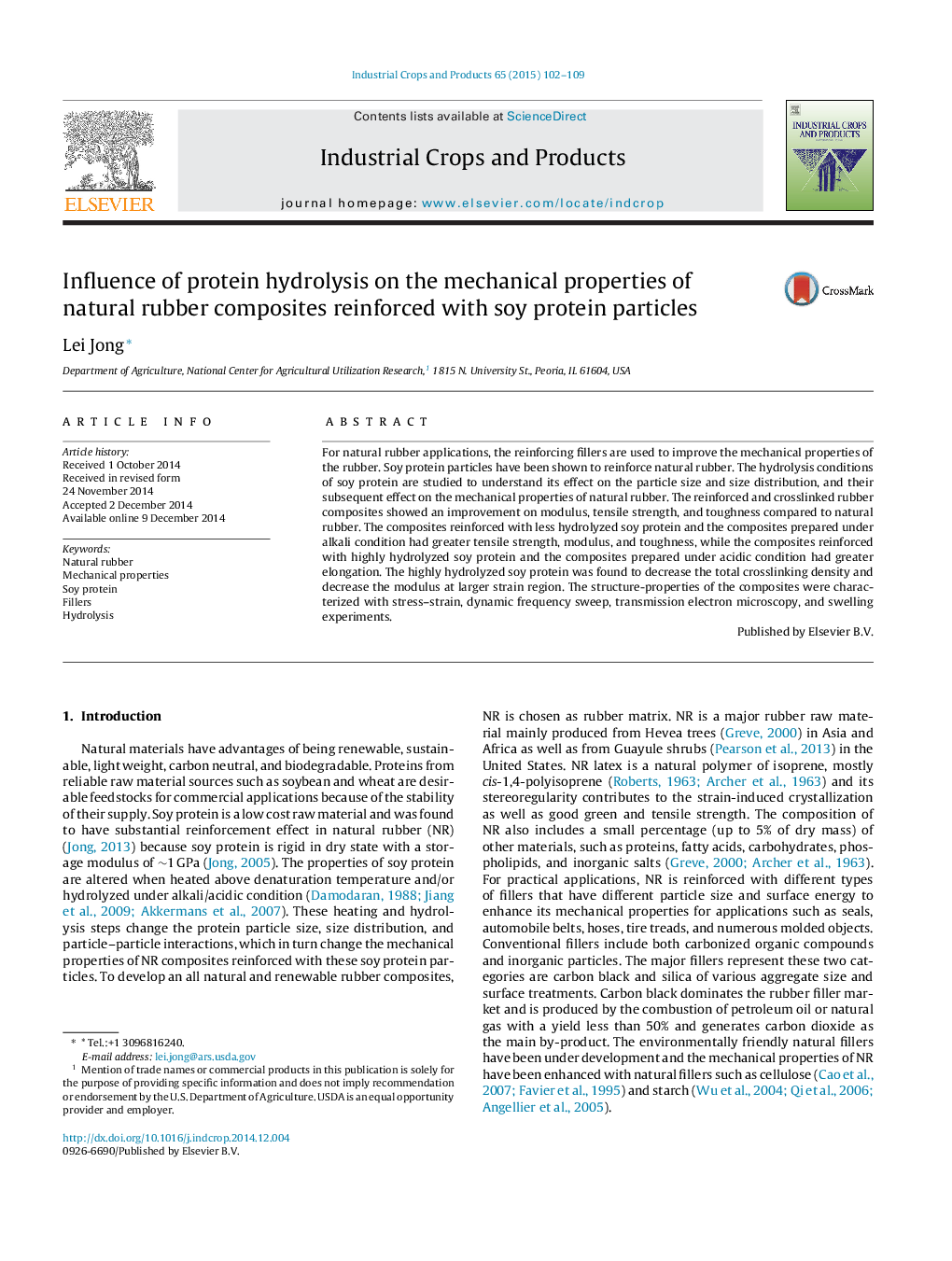| Article ID | Journal | Published Year | Pages | File Type |
|---|---|---|---|---|
| 6376167 | Industrial Crops and Products | 2015 | 8 Pages |
â¢Nanoparticles of soy protein were produced with limited hydrolysis.â¢Alkaline protein nanoparticles enhanced the modulus of rubber at large strain.â¢Limited hydrolyzed soy protein improved the stiffness of natural rubber.â¢Highly hydrolyzed protein changed the crosslinking of rubber.
For natural rubber applications, the reinforcing fillers are used to improve the mechanical properties of the rubber. Soy protein particles have been shown to reinforce natural rubber. The hydrolysis conditions of soy protein are studied to understand its effect on the particle size and size distribution, and their subsequent effect on the mechanical properties of natural rubber. The reinforced and crosslinked rubber composites showed an improvement on modulus, tensile strength, and toughness compared to natural rubber. The composites reinforced with less hydrolyzed soy protein and the composites prepared under alkali condition had greater tensile strength, modulus, and toughness, while the composites reinforced with highly hydrolyzed soy protein and the composites prepared under acidic condition had greater elongation. The highly hydrolyzed soy protein was found to decrease the total crosslinking density and decrease the modulus at larger strain region. The structure-properties of the composites were characterized with stress-strain, dynamic frequency sweep, transmission electron microscopy, and swelling experiments.
Graphical abstractDownload full-size image
